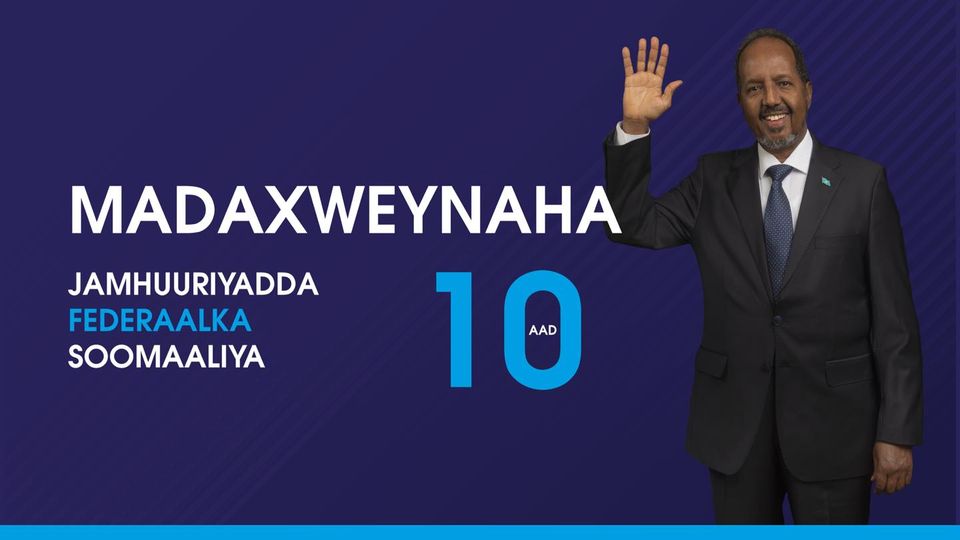MOGADISHU (HAN) May 16. 2022. Public Diplomacy and Regional Stability Initiatives News. Monitoring Regional Issues by on August 12, 2016 in Reports. Public opinion data, as scholars, journalists, and political commentators have sought to answer this question; there has been considerable debate about the dynamics and impact of public opinion about president’s term in office for re-election, 2016.
In this Review briefing note, prepared by the SIRAD Institute will provide historical and theoretical context by examining the dynamics of opinion formation and opinion change during a president’s term in office.
The note review analysis traces the empirical regularities of citizen learning about a sitting president. Our analysis shows that polarization tends to be greatest among those presidents who were successfully reelected:
- Each presidency creates an opportunity for citizens to acquire new information about the character, abilities, and policy preferences of the winning candidate, and this learning has consequences for the subsequent reelection contest.
- The months of presidential campaign creates a ripe environment for citizen learning.
- Following the election, the public has four years to develop and update opinions about the winning candidate as he governs.
- With the intensive media coverage, campaign advertising, campaign events, and increased political discussion, political campaigns provide an information-rich environment that helps voters in selecting a preferred candidate by Election Day.
- The president is the most newsworthy and heavily covered person in Somali politics; even the most detached citizens are likely to encounter at least some information about the chief executive. The cumulative volume of information naturally grows the longer the president is in office, making it easier for previously uncertain individuals to develop opinions; either to support or against.
- Obviously, every opinion is a marriage of information and predisposition. For people who already harbor strong opinions at the beginning of a president’s term, the processing of information about the president during his administration will almost never be objective or balanced.
- The first hypothesis is that opinions about the president will strengthen and become more extreme along existing political cleavages, particularly among those most likely to consume new information.
- As professional marketers know, information gathered passively generates less arousal and resistance, and so is more easily accepted.
- Remember, Individuals without prior opinions about the president are less politically engaged, interested, and knowledgeable, that is, individuals who tend to receive information about politics passively.
- At the end of the president’s term (Somali President 2016), many of those previously uncertain individuals will know more about the incumbent’s policy positions and personality traits than they do about the challenger.
- The “greater the individual’s uncertainty about the candidate’s policy positions, the lower their utility for the candidate and hence the lower their probability of supporting the candidate, all other things held constant”
- Predispositions and political awareness are necessary preconditions for polarization to occur. This leads to the basic prediction that polarization is often an inevitable consequence of time in office.
- Pre-existing opinions of the newly elected president: Lacking prior opinions to filter political messages, those who are uncertain about the president should be more likely to simply absorb whatever information happens to penetrate their daily lives.
- The president can directly improve his reelection chances by being a polarizer, but rather that a president who takes clear ideological stands is more likely both to polarize one portion of the electorate while simultaneously raising his evaluations among another portion of the electorate.
Generally, citizen learning about a sitting president contributes to two distinct but simultaneous dynamics in public opinion over the course of a president’s first term in office:
- First: For those individuals with prior opinions of the president, learning contributes to more polarized evaluations of the president by the next election.
- Second: For those individuals initially uncertain about the president, learning contributes to opinion formation about the president by the time he stands for reelection.
There are, of course, many other reasons that we might expect informational asymmetries that advantage the incumbent, including resource differences or the ability to control the agenda. Our expectation is that the benefits associated with such information gains occur only in the subset of the electorate without preexisting opinions.
Across a variety of measures, we evaluate the extent of learning about a sitting president by analyzing aggregate changes in the likelihood of answering various questions about the president by the end of his first term:
- Compared to the beginning
- Compared to a challenger from the opposing party. We assume that the ability and willingness of respondents to evaluate a politician indicates their uncertainty about the person.
Pre-Judgement: Political predispositions govern exposure to and acceptance of messages about the president, we expect opinions about the incumbent to polarize among people with preexisting judgments. There are a multitude of predispositions that we might identify for evidence of such polarization of opinion: partisanship, issue preferences, ideology, or demographic indicators, among others.
Historically, when a president sought reelection, we found that uncertainty in the incumbent candidate’s evaluations drops by 7.7 percentage points, the partisan gap in these evaluations rises by 4-8 points, and open-ended comments about the incumbent rise by 25%.
Conclusion:
The conventional view suggests that moderation and clear message towards public, echoing their strong public yearning to gain their social qualities and nationhood is the key to winning elections.
The empirical patterns that emerge from our analysis reveal that citizens continue to learn about the winning candidate after the campaign ends (2012 election), and the information acquired has consequences for the subsequent for opinion change and formation towards 2016 Election mode.
Citizen learning is thus something of a double-edged sword. Voters do indeed gather more information about politics, widely viewed as a desirable outcome, but this comes at the expense of greater polarization.

Leave a Reply